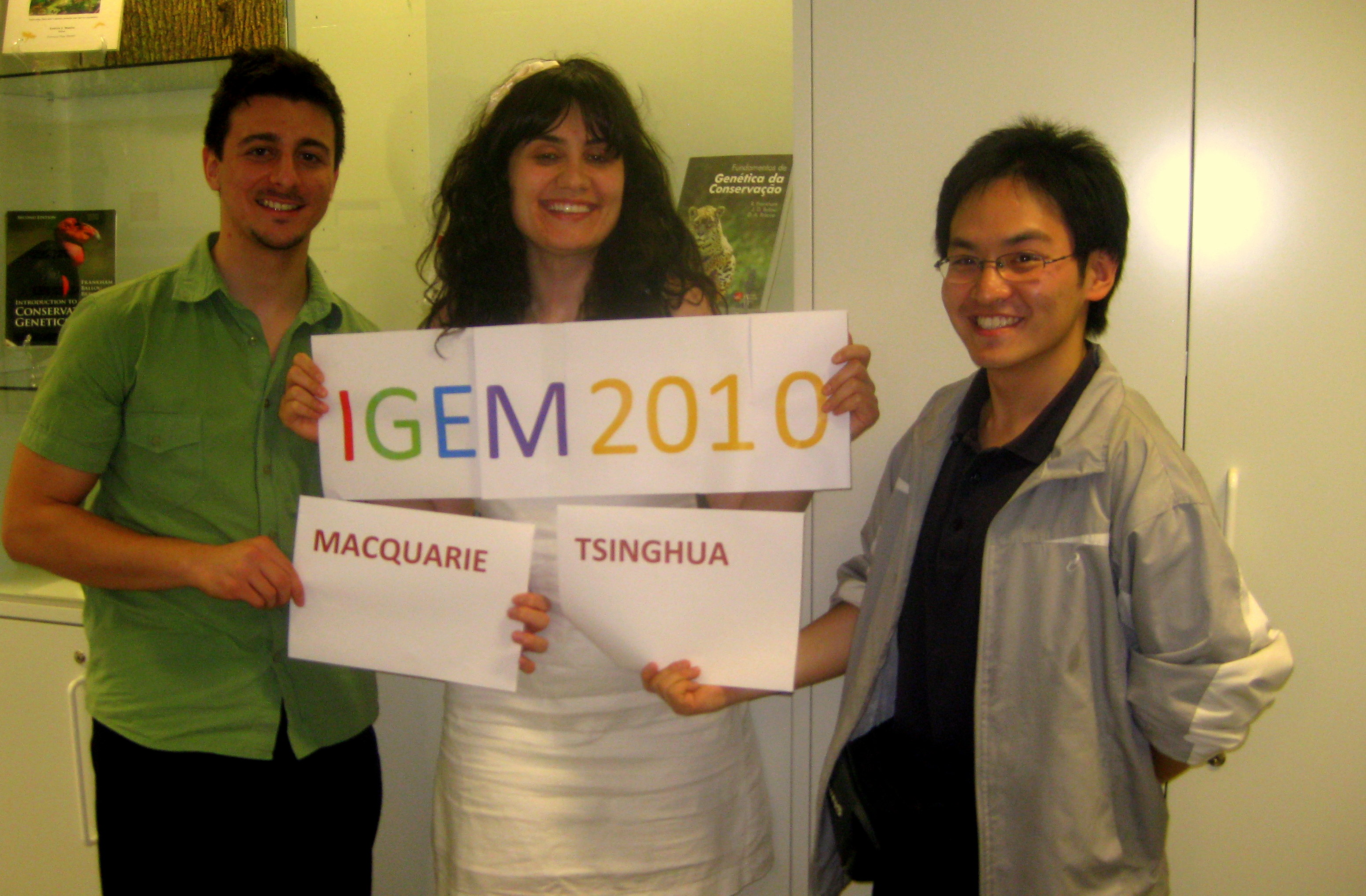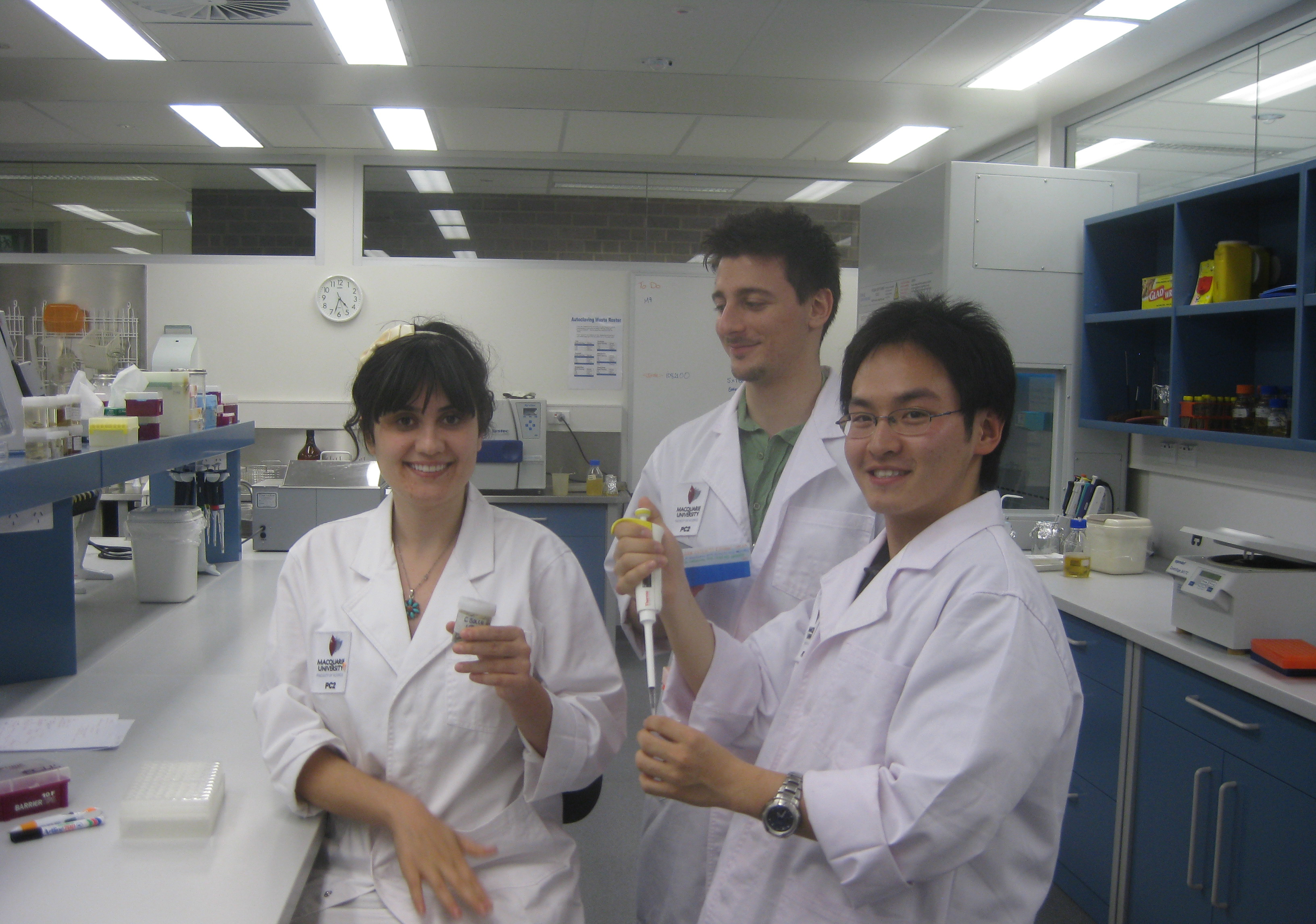Team:Tsinghua/HumanPractice
From 2010.igem.org
(→Safety) |
|||
| Line 77: | Line 77: | ||
<html><a href="https://static.igem.org/mediawiki/igem.org/8/8f/Tsinghua_iGEM_2010_Safety_Manual.pdf" target=blank>Tsinghua iGEM 2010 Safety Manual</a> | <html><a href="https://static.igem.org/mediawiki/igem.org/8/8f/Tsinghua_iGEM_2010_Safety_Manual.pdf" target=blank>Tsinghua iGEM 2010 Safety Manual</a> | ||
| - | + | <a href="#top"> <img src="https://static.igem.org/mediawiki/2010/d/dd/TOP.png" class="smalllink"/>TOP</a> | |
Revision as of 13:34, 17 October 2010

Ethics
BioEthics in Tsinghua iGEM
Here in Tsinghua iGEM 2010 Team, we are now focusing on some parts of BioEthics, such as animal handling requirement, care for animal welfare, appropriate standards of care, broader environmental issues with potential social and health impacts, impact of our products to be used in the manufacture and how to spread our ideas to make more people get this knowledge.
Thus we, Tsinghua iGEM 2010, pay our attention specially to BioEthics and keep our promise by two ways. One is to teach every member about keeping healthy, safe and being environmentally friendly while conducting experiments. The other one is to try visit and talk with more people, discussing about our projects, the current biological issues and how to promote the environment where we are living as well as let more people know about and start to be interested in Synthetic Biology and iGEM.
Safety
According to the WHO biosafety is the prevention of unintentional exposure to pathogens and toxins, or their accidental release, whereas biosecurity is the prevention of loss, theft, misuse, diversion or intentional release of pathogens and toxins. (From https://2010.igem.org/Safety)
We are always paying special care to the safety of our teammates and the people around. Thus we signed a document to keep in rules about the Safety in Laboratory, not only to protect ourselves but also help to keep a clean and healthy environment.
The model animals we used are harmless engineering strains of Escherichia coli. They are widely used in all kinds of laboratories around the world. We answered the questions about safety on the Safety Page from iGEM(https://2010.igem.org/Safety) as following:
Q1: Would any of your project ideas raise safety issues in terms of:
researcher safety,
public safety, or
environmental safety?
A: Our project is about how to use E Coli to simulate the production of Specific Antibodies. No serious safety problem can be caused by the harmless engineering strains of Escherichia coli and we kept our promise and rules which ensure the safety during the whole process.
Q2: Do any of the new BioBrick parts (or devices) that you made this year raise any safety issues?
A: No any potential safety issues.
Q3:Is there a local biosafety group, committee, or review board at your institution?
A: Yes, it is. The safety check is operated frequently.
Q4:Do you have any other ideas how to deal with safety issues that could be useful for future iGEM competitions? How could parts, devices and systems be made even safer through biosafety engineering?
A:
All the staffs and students operating the infrastructures, devices and anything related with experiments are required to wear the gloves all the time while working. To keep these in rules and in case of any accidents we carried out a document to keep in line with.
Activities
Shanghai Meetup
More Info at 2010 iGEM China meetup
This year, on August 5th, teams from universities in China,
SJTU-BioX-Shanghai,
Tsinghua,
Peking,
ECUST-Shanghai,
USTC,
USTC_Software,
ZJU-China
and Sun Yat-sen University all gathered in Shanghai and had a nice day at the iGEM 2010 China Meetup.
 TOP
TOP
<a name="tsinghua"></a></html>
Tsinghua University Lecture Day
Survey and Discussion
A Visit to Macquarie_iGEM
On 27/9/2010, GU Xiang, one of the team students in Tsinghua iGEM paid a visit to the Macquarie iGEM. GU Xiang, Yagiz Aksoy and Hilal Varinli met together. They firstly visited the Life Science Building in Macquarie, "It is amazing" said by GU Xiang. Then they three dropped in the Biology Museum in that building. Later GU Xiang together with Yagiz and Hilal did some of their experiments on that day. The research devices and environment in the labs of Macquarie are absolutely at world leading-class level.
After that, they introduced and talked about each other's projects. Through that they found the project of Macquarie iGEM can be a potential screening method for the project of Tsinghua iGEM. Also hearing that Macquarie iGEM is a newly built team, GU Xiang generously gave his ideas and experience in iGEM to Yagiz and Hilal, promoting them to build better wiki to let more people know about their ideas. Finally they three expressed freely about the issues in Biology and Life Science as well as the Chinese Culture, especially the Kungfu. They had a wonderful day!
 "
"








